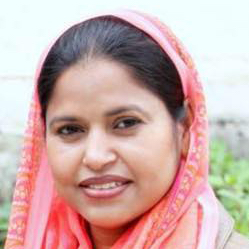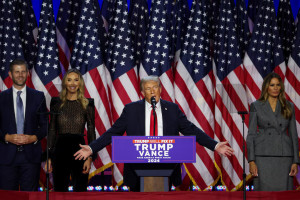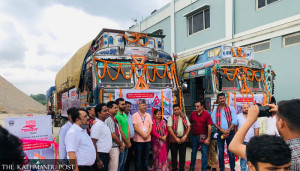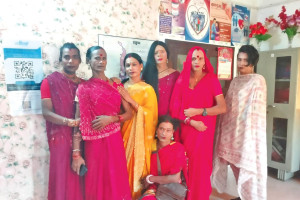Columns
National Human Rights Commission appointees should be independent and competent
The commission is in danger of ending its term in disrepute, largely over its role in relation to transitional justice..jpg&w=900&height=601)
Mohna Ansari
The current set of National Human Rights Commission (NHRC) commissioners, of which I am one, will end their term in October 2020. Five years into our task, and with only months to go, is perhaps a good moment to reflect on what we could have done better and how to avoid repeating unnecessary mistakes.
This commission is in danger of ending its term in disrepute and dispute, largely over its role in relation to transitional justice and the constitutional commissions. Arguably, many of the failings of the current NHRC can be traced back to the selection of commissioners—as was the case with all previous commissions.
Doomed from the start
However good a commissioner is individually, if they are clearly placed by a political party to represent vested interests, that member will be unable to act independently without thinking twice about how their actions affect the sponsors. Public doubts about the NHRC even affect any genuinely independent commissioner trying to do a job with integrity; people assume that all are part of a politicised and corrupt system. With each compromise and compromised decision, the commission loses popular confidence, ultimately undermining its influence and impact.
The National Human Rights Commission should be the beacon to guide the population on human rights issues, particularly on those issues that cause controversy. The state’s approach to protests in the Tarai would be one example where leadership was lacking. Another is the 2015 Tikapur incident which continues to cause instability, as many perceive the handling of the incident to be a miscarriage of justice. The NHRC members, myself included, have also been unable to help promote the thematic commissions, which are supposed to give a voice to the historically marginalised groups as set down by the 2015 Constitution.
We have seen the delay in appointments to the constitutional commissions. The National Dalit Commission and National Women Commission, two permanent commissions that already existed before the 2015 Constitution was promulgated, have remained without office-bearers for five years. The other new commissions—to be established under Articles 252 to 264 of the Constitution—have their chairpersons, but no initiative has been taken to appoint other members. In the meantime, the limited six-year period for which they are supposed to be functioning is arguably ticking. It is common knowledge that these delays are due to political bargaining. The NHRC also has to take some responsibility in the failure to bring about these other constitutional bodies.
However, the current make-up of the National Human Rights Commission possibly risks being remembered most of all for its failure to help complete the transitional justice process. The members took office just as the Supreme Court declared that the Truth and Reconciliation Act was in violation of the constitution and Nepal’s international obligations. Five years later, we may well leave office with the political forces continuing to refuse to respect that judgment, an indication of unacceptable politicisation of transitional justice.
Donors, too, have to accept some responsibility for the current state of affairs. Donors have a responsibility to finance projects that will have a positive impact and to make sure that they work properly, not just sign a cheque and turn away. For many years, many organisations gave large sums of money to the NHRC—through multiple membership changes. While the donations may have looked good on the donors’ reports, very little was actually achieved with the funding. Now, the commission hardly receives any international funding.
Failure in completing the peace process
The year 2019 witnessed how the process of appointment of new officeholders to the two transitional justice commissions is in shambles. The committee should have been independent and professional in its working, but the recent nominations were all party nominations, so those in office are now in debt to their political sponsors. No good can come of this; victims have already said they do not trust this setup. Sadly, the National Human Rights Commission has participated in this charade.
Bodies are not piling up in our towns and villages as they did during the conflict period. But much of the details of what happened remain obscured. Moreover, we don’t know why our institutions of justice failed to prevent grave violations, failed to protect us, and at times became instruments of violence and injustice themselves.
Nepal is in need of an effective transitional justice process to inform us about what needs to be done to reform our institutions to make it less likely that similar violations will occur in the future. We equally deserve an effective NHRC to ensure that the rule of law and human rights are upheld going forward. Civil liberties, gained in the 1990 and 2006 People’s Movements, are under threat by a series of authoritarian manoeuvres. Restrictions on the freedom of expression, association and assembly may not have the same dramatic impact as violence and murder, but they are precious and difficult to regain once lost.
Nepal is coming up for evaluation under the Universal Periodic Review (UPR) of the UN Human Rights Council in November 2020. When one checks how Nepal has approached the reviews of other countries, interestingly, the country has made recommendations for the establishment and strengthening of national human rights commissions in line with the Paris Principles in Japan, Lesotho and Benin. The irony here is that Nepal itself is not adhering to and upholding the Paris Principles. Notably, many other states have made recommendations during Nepal’s two prior reviews to strengthen the National Human Rights Commission.
In the next few months, we hope the countries that made these recommendations in the past—including India, the Republic of Korea, Portugal, Uganda and Australia— and others to lobby to ensure that the next batch of NHRC commissioners appointed will be truly independent, impartial and have human rights expertise in line with the Paris Principles. In Nepal, those who care about the rule of law and human rights have to start campaigning to ensure an effective and truly independent National Human Rights Commission is brought into being in October 2020.
***
What do you think?
Dear reader, we’d like to hear from you. We regularly publish letters to the editor on contemporary issues or direct responses to something the Post has recently published. Please send your letters to [email protected] with "Letter to the Editor" in the subject line. Please include your name, location, and a contact address so one of our editors can reach out to you.




 20.12°C Kathmandu
20.12°C Kathmandu














